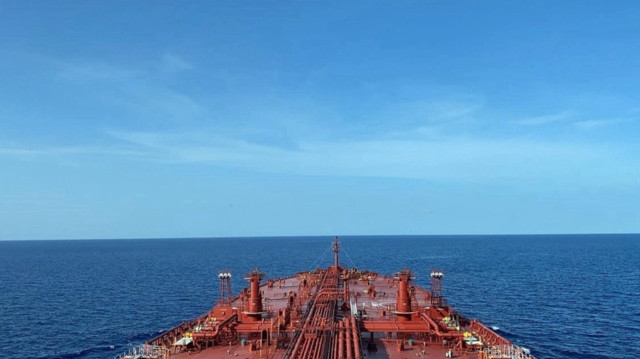
'Closing of the Strait of Hormuz by Iran would be extremely dangerous and not good for anybody,' says EU's foreign policy chief
EU's foreign policy chief Kaja Kallas on Monday warned of serious risks of escalation in the Middle East amid rising tensions with Iran and stressed the need for a diplomatic solution and continued dialogue.
Speaking ahead of a meeting of EU foreign ministers in Brussels on Monday, Kallas acknowledged the “huge concerns” surrounding potential Iranian retaliation and the broader consequences of conflict in the region.
“We have already had a breakfast discussing Iran,” she told reporters at the doorstep briefing.
“Ministers are very much focused on the diplomatic solution. The concerns of retaliation and this war escalating are huge — especially the closing of the Strait of Hormuz by Iran. That would be extremely dangerous and not good for anybody.”
The Strait of Hormuz is a vital shipping route for global energy supplies, and any disruption there could have severe geopolitical and economic consequences.
Kallas confirmed that discussions on Iran form a key part of a wider agenda at the Foreign Affairs Council, which includes broader developments in the Middle East, such as the ongoing war in Gaza and EU-Israel relations.
“We are discussing the Middle East in a broader sense — also Gaza and Article Two of our association agreement with Israel,” she said, adding that a review of the EU-Israel agreement had been completed and distributed to all member states for discussion.
Highlighting the EU's preference for dialogue over confrontation, Kallas pointed to recent talks with Iran's foreign minister last Friday as a positive step.
“The EU has always been in favor of development diplomacy,” she said. “Iran was opening up to discuss not only nuclear issues but also broader security topics that are of concern to Europe. Definitely, we have to keep this ongoing — in the end, there has to be a diplomatic solution to have a long-term perspective.”







